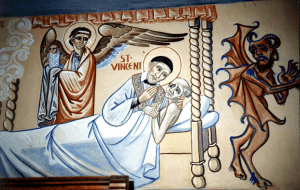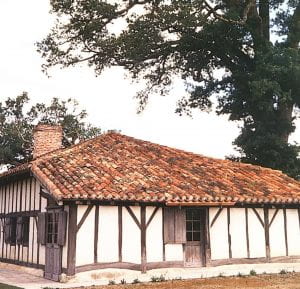Throughout the upcoming year, people will observe many kinds of anniversaries. They may throw a party for a friend or family member’s birthday. Partners or spouses may exchange gifts to commemorate their first date or wedding anniversary. Countries may celebrate the date of their founding. Others still may remember a family member on the anniversary of their passing. All these occasions provide us with an opportunity to pause and reflect on the significance of a particular date tied to events in our past that make the day impactful.
When asked to identify the origin of “the mission,” Vincent de Paul noted that it all began on January 25, 1617. Several days prior he had heard a confession from a sick peasant, and on January 25 he preached at St. James church in Folleville, France, about that transformational experience. It was on that day that Vincent’s life took a turn, and what we now know as the Vincentian Mission was born.1
Today, then, is celebrated as the 404th anniversary of the foundation of the Vincentian Mission. As such, it provides the DePaul University community and the Vincentian Family a time to reflect upon that mission. January 25 is a day to remember the part we have played in this movement that started in a small countryside town in France. This mission has spread across the globe and impacted millions of people, including our own students, faculty, and staff at DePaul
When thinking about the 404-year history of the Vincentian Tradition, how have you played a role in continuing its legacy? What are other anniversaries that you celebrate or observe throughout the year that are important in helping you to remember what is most important in your life?
If you are interested in learning more about Foundation Day, see this new reflection by the Vice President of Mission and Ministry, Fr. Guillermo Campuzano, C.M.:
1 Conference 112, Repetition of Prayer, 25 January 1655, CCD, 11:162-164.
Reflection by:
Michael Van Dorpe, Program Manager for Faculty & Staff Engagement, Mission & Ministry
JOIN US FOR:
Sustaining the Mission: Integrating Vincentian Mission into Our Work at DePaul
Thursday, February 18th
9:30 – 11:00 am
Zoom
The Division of Mission and Ministry invites you to new workshop that is focused on the practice of “mission integration,” that is, ways of applying DePaul’s Vincentian mission to one’s daily life and work. Participants will be invited to reflect on how they might be agents or leaders for mission in their areas of responsibility and influence. Please join us.
Register here: http://events.constantcontact.com/register/event?llr=qiic4w6ab&oeidk=a07ehj28vy045bb4fab




